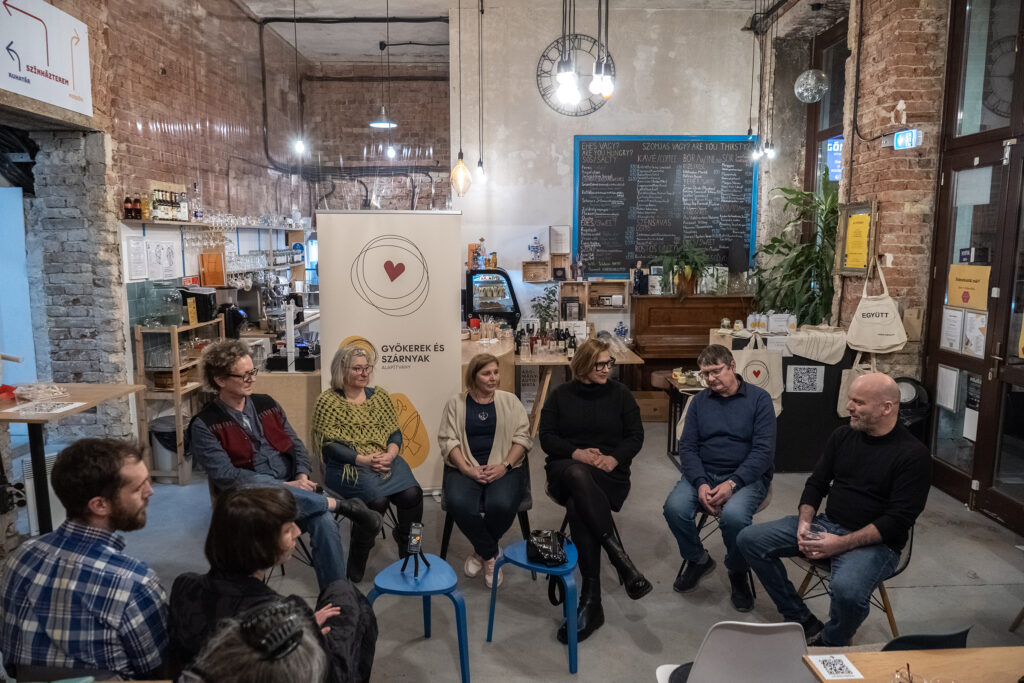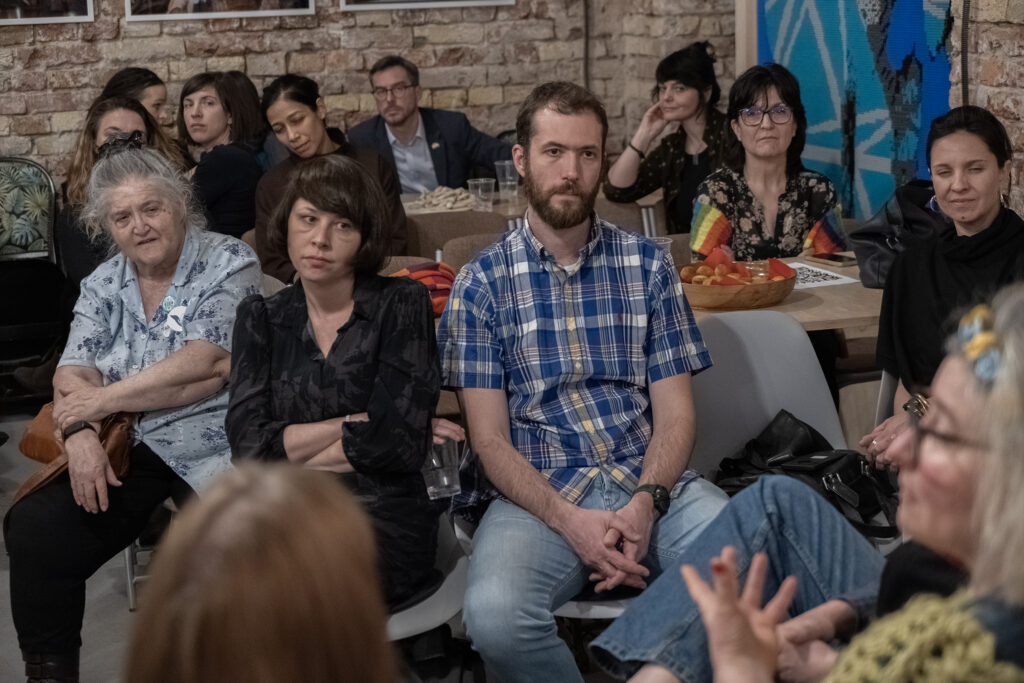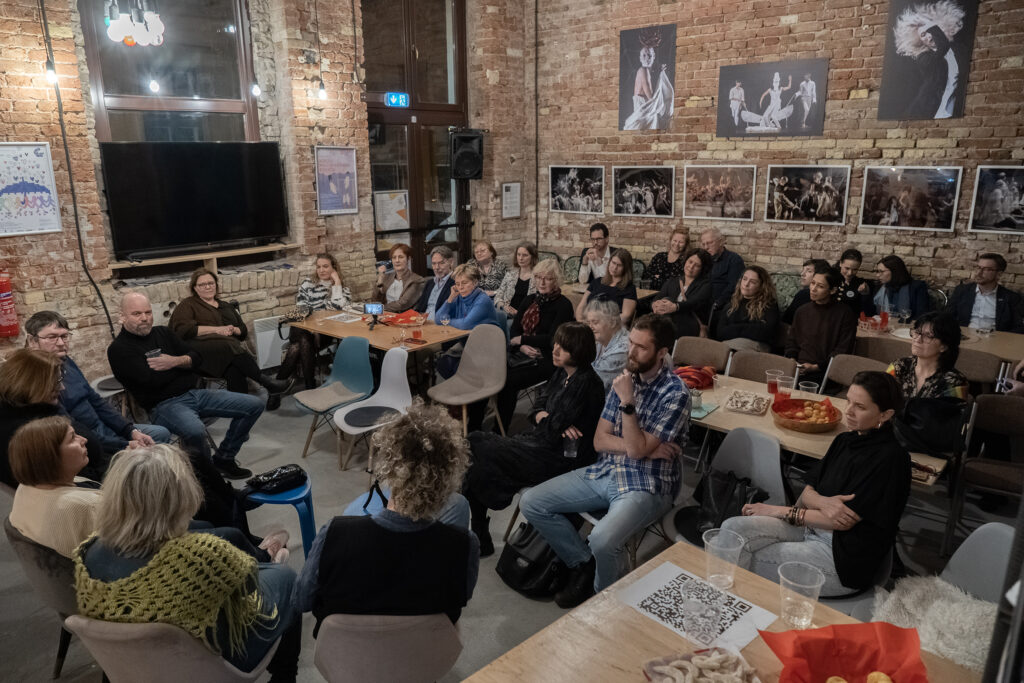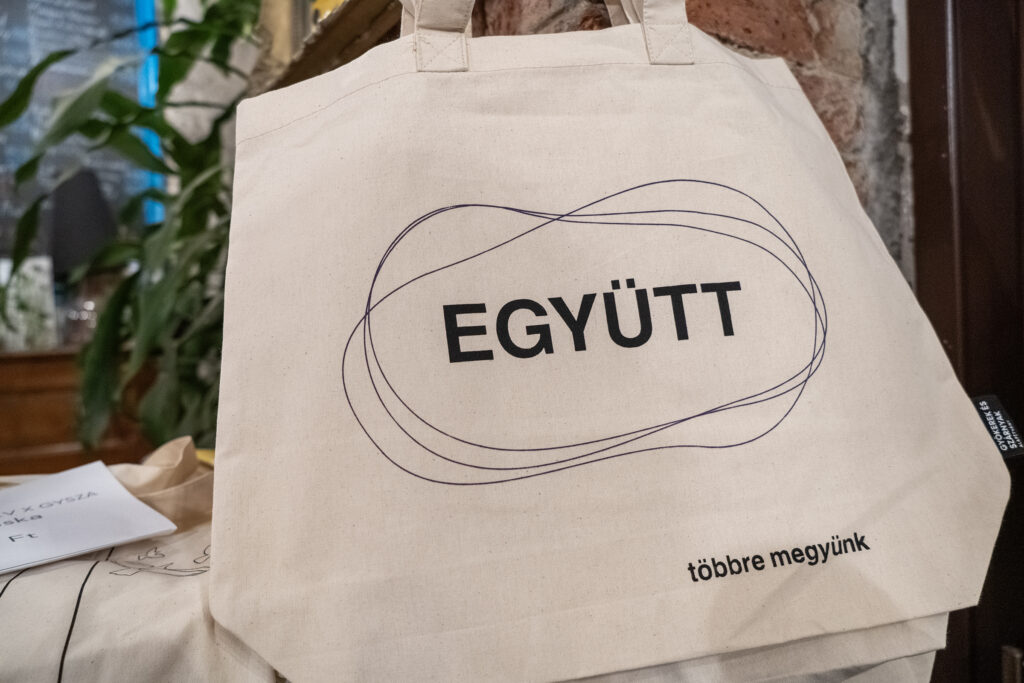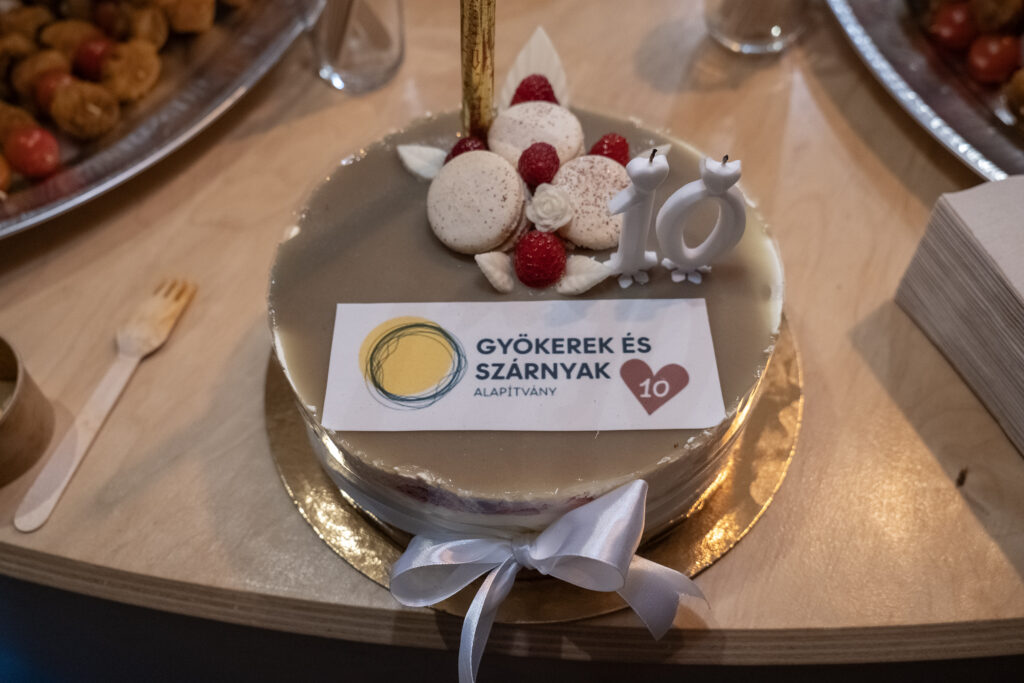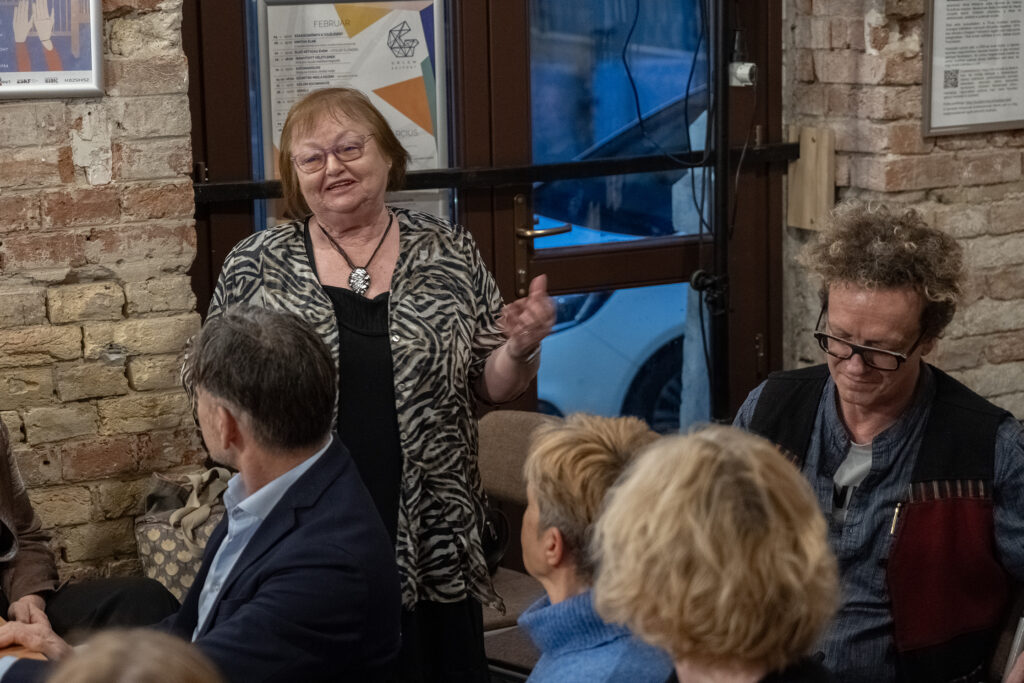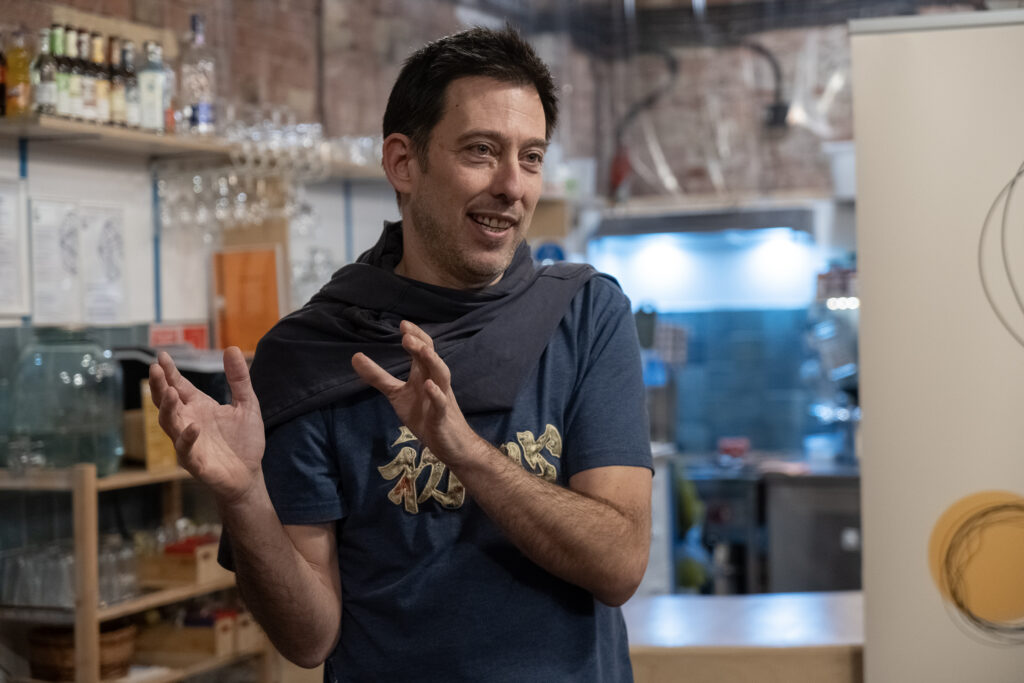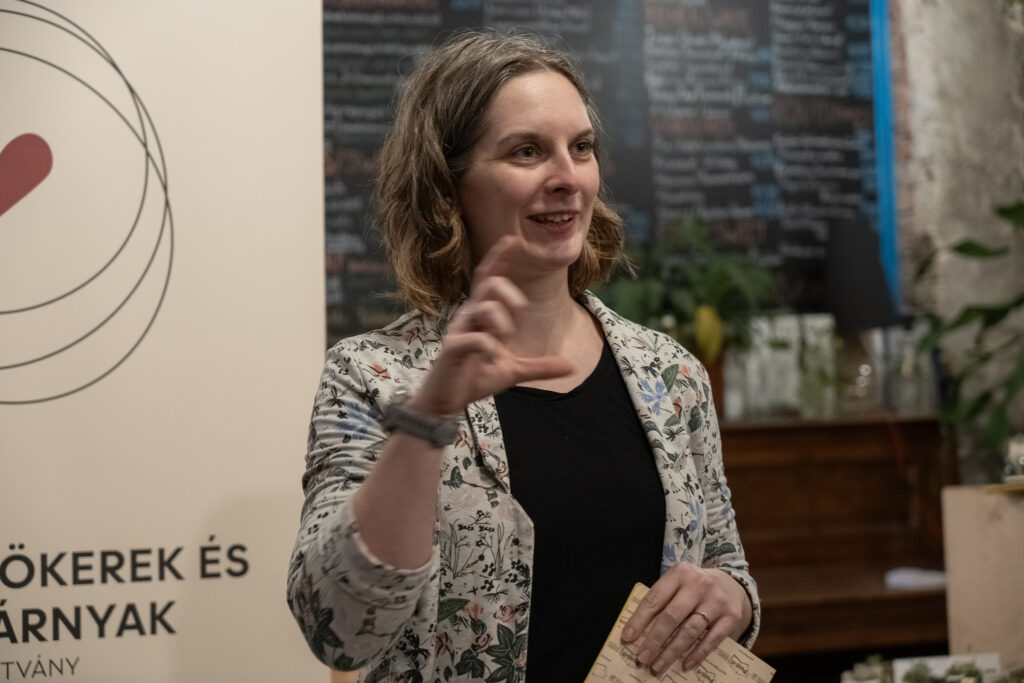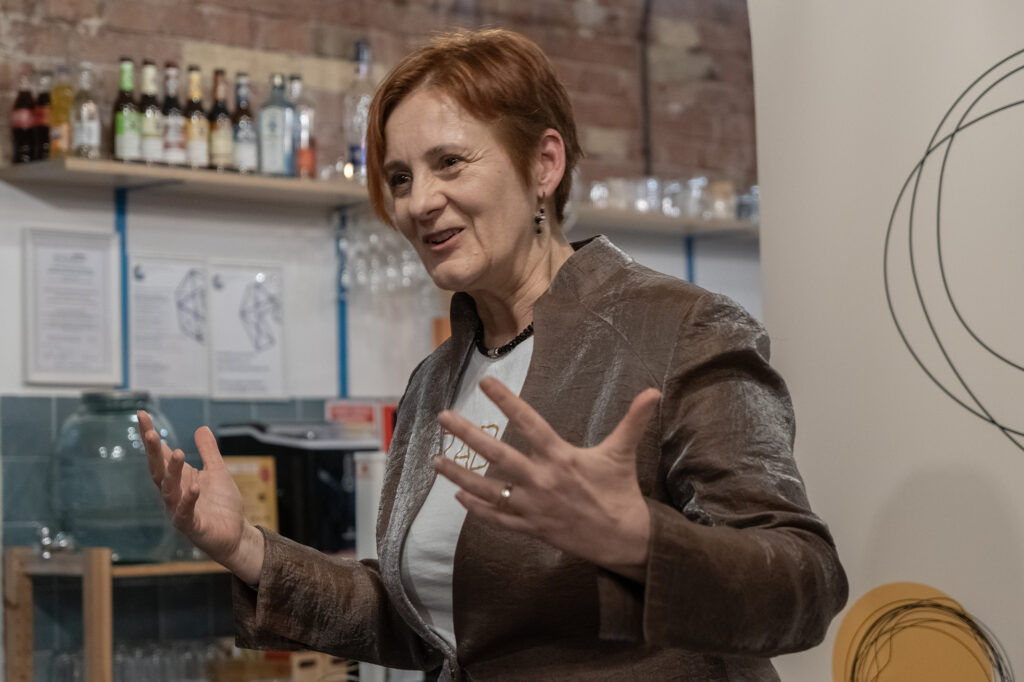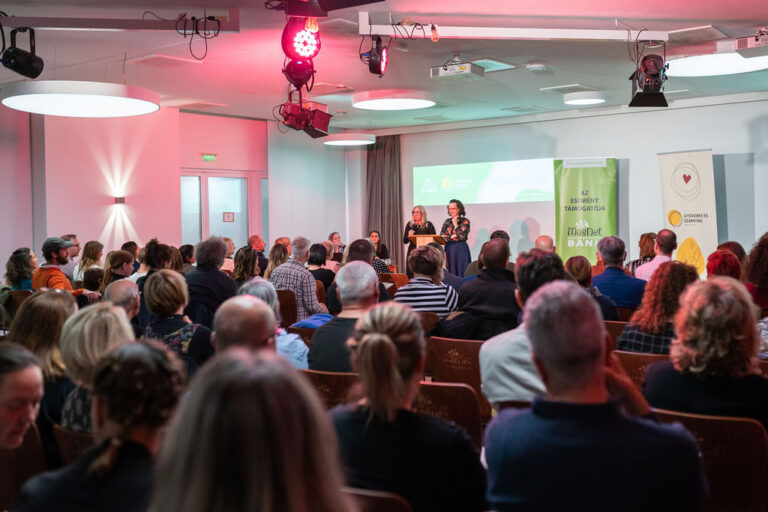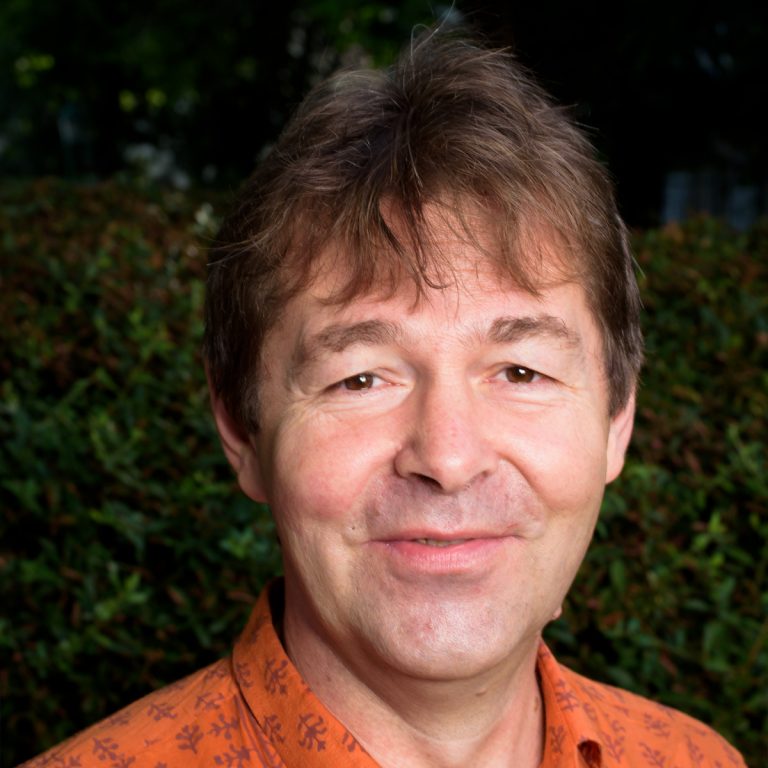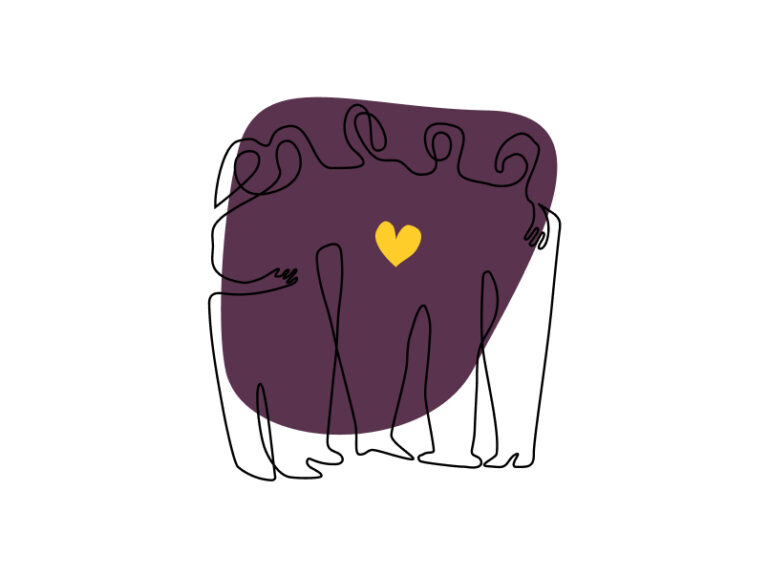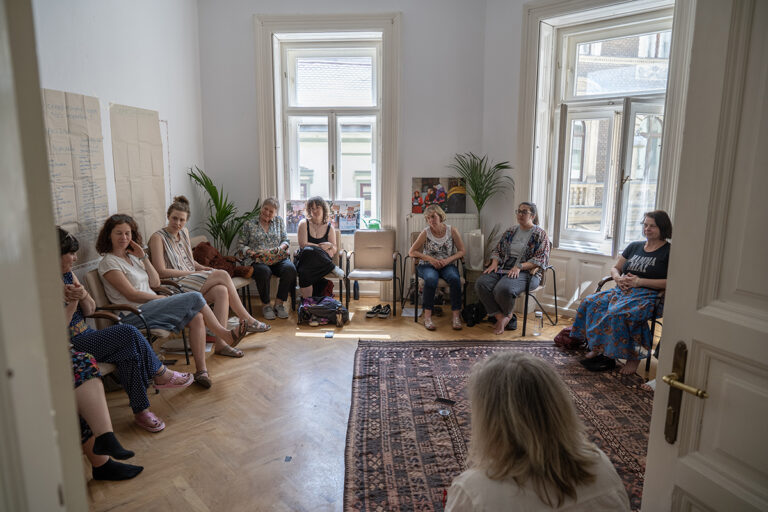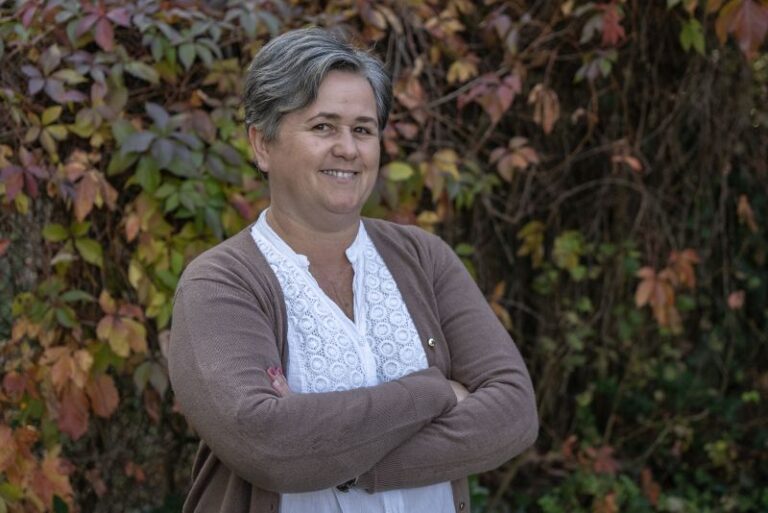“Now is Our Time for the Big Stage”
“We initiate even when everyone says it’s impossible due to the context.”
“This sector is indestructible because of its diversity and adaptability.”
“The context in Hungary has always been miserable.”
“I don’t think we should ever wait for the state.”
“I say this in a positive sense: You are the white clover for me.”
These are just a few of the many statements that deeply etched themselves into our minds during the 10th anniversary of the Roots and Wings Foundation (RWF), which we celebrated with our supporters and friends at the end of February.
We begin the unconventional report with its conclusion: as the final part of the official program, we held a roundtable discussion on the prospects of the civil sector. The participants of the conversation included Gabi Benedek, our foundation’s curator and colleague; Éva Fekete, curator of the Helyi Szálak Community Foundation in Nyíregyháza; Orsi Kiss-Bakucz, leader of the Diósdiak Diósdért Association; Péter Peták, a staff member of the Power of Humanity Foundation and expert of our Revitalising Small Towns Programme; and István Sebestény, a researcher of the civil sector.
In this ever-changing world, in the constantly deteriorating Hungarian environment, what keeps you grounded? What do you hold on to every day?
Péter Peták: I’ve come to realize that it’s not just a basic right, but a basic need for people to come together and unite. In that sense, civil activism will always exist, no matter how the environment changes.
Éva Fekete: What I’ve consistently experienced is that the task is always to build from scratch to one, and then again from zero to one. What we’ve done and built so far, I see as a backup, something we can rebuild from if everything gets wiped out. We have a saved version, which we can call a starter, a superpower, anything, from which we can rebuild again from scratch. And for that, we need ourselves.
Orsi Kiss-Bakucz: Five years ago, when we met with RWF and institutionalized ourselves, we found ourselves in a very good environment. Our socialization and these conversations are a great help.
Gabi Benedek: I could say that I have no better idea of what to do. I could also say that impossible missions motivate me quite a lot. RWF’s whole history started with community foundations, something that was said to be hopeless in Hungary at the time. We said, “Alright, let’s go for it.” Maybe this current situation is similar.
István Sebestény: In Hungary, we’re talking not so much about resistance but about survival. Unfortunately, this means that people will allow anything to be taken from them: morale, opportunities, anything, and they just accept it and go on living. The consequence of this is that there’s a kind of solidarity: everyone is sure that the other won’t act, and neither will they. The authorities want exactly that: for people to not want to act, not to want to do anything. Now, the task of the civil sector could be to first break down apathy at the local level and resurrect morality.
Éva Fekete: I work 24 hours a day on what I believe in – I cannot imagine stopping this under any circumstances. Now it’s even more important that what we’ve done so far, we do not do as a campaign, but systematically, continuously, teaching others as well. The fundamental attitude should be that things don’t just happen to us, we don’t endure them, but we initiate and shape events. We initiate even when everyone says that it’s impossible because of the context. For this reason, I believe that now is our time for the big stage: when Armageddon comes, when the moral crisis and apathy hit, that’s when these energies will be most needed, and all the things we’ve practiced during peacetime.
Gabi Benedek: I’d like to share an example related to physics. When we build riverbeds on the beach with sticks and shovels and pour water from a bucket, it’s completely obvious that the water will flow from these little ditches into the river. In the same way, it’s obvious that these veins and channels we’re building point towards a more normal world. Moreover, I believe this sector is indestructible because of its diversity and adaptability. One of its survival methods is that it can calmly try different things because it’s so multifaceted, and each organization will try something different. This is a very deep social fabric; it’s not a building that can easily be destroyed.
Péter Peták: I don’t think we should wait for the state in anything, I think the state has nothing to do with what we do – of course, it’s not good when they hinder or persecute us. I don’t believe that the system of the ’90s, which now seems ideal, will return. We’re not going backward in time; it won’t be better the way it once was. Everything is transforming, and so is civil society. There are losses in this, but there are also new, constructive, and sustainable phenomena. These are the things we should derive and inject into the civil sector to make it resilient. Now, I could return to praising RWF, because relying on the community, organizing fundraising, building a supporter base, strategic thinking, and conscious capacity planning are precisely what are important. Yes, there are players across the country who don’t organize their core activities from external sources, and it’s clearly not about self-sacrifice for those who work there – so I see viable examples.
Orsi Kiss-Bakucz: I can’t predict the future, and I don’t want to, but while listening to you, I realized that my civil work involves falling down and getting back up. Someone always comes along, trips us up, and then we don’t just pet our bruises but stand up again. And now more and more people are helping us get back up, or we are helping others get back up. I have no idea where the world is going, but I know that as long as our freedom isn’t taken away, I’ll keep doing this.
Praise and Appreciation
Before the discussion, we asked our friends, who are strongly but differently connected to us, to share how they see us. Here are some important thoughts from them:
Teréz Kleisz, Curator of the Pécs Community Foundation
“RWF supported us generously, just as is positively mentioned in the literature, and as MacKenzie Scott does worldwide – building trust-based relationships is fundamental in our profession.”
“The context in Hungary has always been miserable. We have to accept this, and strengthen the fighting spirit, somehow accumulate forces.”
Gábor Héra, Sociologist
“It was surprisingly interesting that RWF was concerned with the results of impact measurement. Even more surprising was that we spent hours discussing the consequences of this. This kind of self-reflection, openness to criticism, and the ability to learn was something new for me. I see that this attitude – just like trust, partnership, and ensuring freedom – is also present in their work with those they support, and this is what can work wonders.”
Tímea Rózsa, Organizational Development Expert
“This team is capable of repeatedly asking fundamental questions, and by doing so, they learn what is truly important, not just for them, but for their supporters, the environment, and society as a whole.”
“I’ll say it positively: You are the white clover for me. The kind of plant that stays green even in the greatest drought, creates life around it, even grows and spreads, even when everyone around it has already withered. Moreover, if it’s cut short, it still blooms and gives to its environment.”
Barbara Máté, Curator
“I increasingly feel that this message is becoming clearer, and I say more and more willingly that the Roots and Wings Foundation is the yeast of the civil sphere. I still get goosebumps when I say it.”
(Iván Bardócz)
